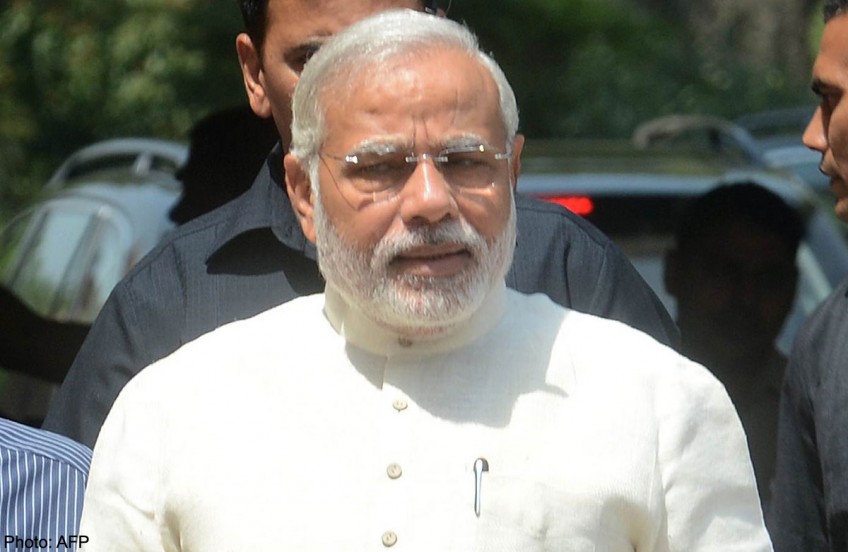India's new govt faces slew of crises

Barely three weeks after it took office, India's new government of Prime Minister Narendra Modi finds itself buffeted by a slew of crises, testing its political skills on multiple fronts and tempering the euphoria of its landslide election win.
The government led by the Bharatiya Janata Party (BJP) has been hit by a fresh jump in food inflation and, even as it rushed to announce measures to cool prices, there are worries of a spurt in oil prices because of the unrest in Iraq. The violence in Iraq has also seen 40 Indian workers kidnapped there.
Back home, the opposition Congress party has hit the streets demanding the resignation of one of Mr Modi's junior ministers in connection with his alleged role in a 2011 rape case.
The government is also struggling to get seven state governors who owe their allegiance to the Congress party to quit, so that it can replace them with BJP veterans who could not make it to Mr Modi's Cabinet because of their age. The refusal of some governors to move on could trigger a legal face-off if the government removes them.
Leaders of the ruling party admitted that it was a difficult situation for the government, but cautioned against rushing to pass judgment.
"You need to give time to judge anyone," BJP spokesman Nalin Kohli said. "Many people are keen to judge Mr Modi on a day-to-day basis because he has got a clear mandate. But the government is here for 60 months and the final judgment should be passed after 60 months.
"In the meantime, we need to see the government for some more time. A one-year perspective is a fair one to be able to assess the government."
Indian Foreign Ministry spokesman Syed Akbaruddin said the Iraqi Foreign Ministry had informed New Delhi that the 40 abducted workers had been located, and the Indian Foreign Ministry was focused on the situation.
The prognosis for tackling food prices, particularly that of essential vegetables, is grim in the face of monsoon rains which are expected to be below normal. The rate of retail food inflation touched 9.56 per cent last month, and the price of onions in New Delhi, for instance, nearly doubled to 30 rupees (60 Singapore cents) per kg in a fortnight.
The government has imposed curbs on onion exports, but analysts said deeper fixes of the farm sector are needed to tackle the running problem.
Meanwhile, the rape controversy involves a married woman in the northern state of Rajasthan, who has accused Minister of State for Chemicals and Fertilisers Nihal Chand and 16 others of rape. A lower court had closed the case, but last week a higher court asked him why the case should not be reopened after it heard her and examined evidence.
Mr Chand has denied any wrongdoing and blamed the scandal on a political conspiracy. Analysts said the controversy could fade soon. The new government is expected to tread cautiously on the issue of governors refusing to step down, as the Supreme Court had ruled in 2010 that a governor cannot be removed merely because he is not in sync with the ideology of the party in power.
Professor Sanjay Kumar, director of New Delhi's Centre for the Study of Developing Societies, said: "There is no reason to doubt whether this new government can handle these new issues that have cropped up. Such issues keep coming up in a large country such as India, and it is not as if that if you resolve these issues, you won't have any others for the next six months.
"The common man thinks it is too early to criticise the government, and I don't think the image of the government has been damaged."
yprajesh@sph.com.sg

This article was first published on June 20, 2014.
Get a copy of The Straits Times or go to straitstimes.com for more stories.